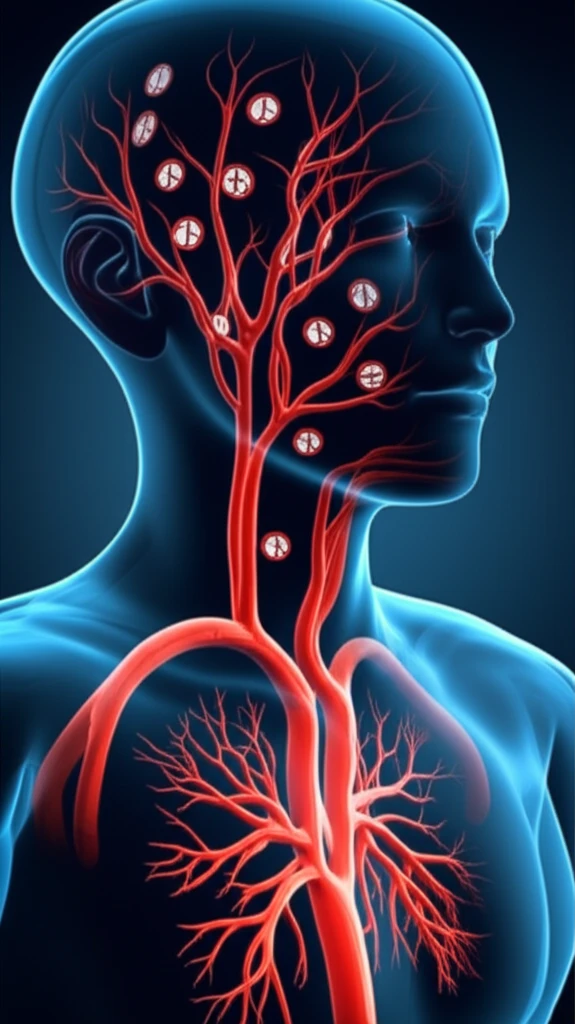
High Blood Pressure in Young Adults: A Hidden Heart Risk?
"New research reveals hypertension as a major predictor of multivessel coronary artery disease (MVD) in young adults, changing how we see heart health in the under-45s."
For years, we've known that heart disease doesn't discriminate by age. But the specific dangers lurking for younger adults often remain hidden. While we tend to associate acute coronary syndrome (ACS) – the umbrella term for heart attacks and unstable angina – with older populations, it's increasingly vital to understand what puts younger individuals at risk.
A groundbreaking new study shines a light on these hidden risks, focusing on a group often overlooked: young adults (45 and under) who experience ACS. The research uncovers a strong link between hypertension (high blood pressure) and a particularly severe form of heart disease called multivessel coronary artery disease (MVD).
This article dives into the study's findings, exploring how high blood pressure can act as an independent predictor of MVD in younger adults. We'll break down what this means for your heart health, why early detection is crucial, and what steps you can take to protect yourself, regardless of your age.
The Hypertension-MVD Connection: What the Research Reveals

The study, conducted at the Affiliated Hospital of Qingdao University, analyzed data from 187 young adults (all male) who were hospitalized with ACS. Researchers compared these patients with a control group of healthy individuals to identify key risk factors for MVD. The results were striking:
- Hypertension as a Key Predictor: High blood pressure emerged as a significant independent risk factor for MVD, even after considering other common risks like age, BMI, smoking, and family history.
- Increased Risk of Major Events: Young ACS patients with MVD experienced a higher rate of major adverse cardiovascular events (MACE) during follow-up compared to those with single-vessel disease (SVD). MACE includes serious events like heart attack, stroke, and the need for further intervention.
- LAD-Related Stenosis: LAD-related stenosis was significantly more common than that of RCA (right coronary artery) and LCX-related stenosis in patients with hypertension.
Take Control: Protecting Your Heart Health at Any Age
The findings of this study send a clear message: high blood pressure is not just a concern for older adults. It can significantly impact the heart health of younger individuals, increasing their risk of severe heart disease. The good news is that hypertension is often manageable through lifestyle changes and, when necessary, medication.
Here's what you can do to take control of your heart health, starting today:
<ul> <li><b>Know Your Numbers:</b> Get your blood pressure checked regularly, even if you feel healthy. Early detection is key. <li><b>Embrace a Healthy Lifestyle:</b> Focus on a balanced diet low in sodium and saturated fat, regular physical activity, and maintaining a healthy weight. <li><b>Quit Smoking:</b> Smoking significantly increases your risk of heart disease, regardless of your age. <li><b>Manage Stress:</b> Find healthy ways to cope with stress, such as exercise, meditation, or spending time in nature. <li><b>Talk to Your Doctor:</b> If you have a family history of heart disease or other risk factors, discuss your concerns with your doctor. They can help you develop a personalized prevention plan.</li> </ul>
